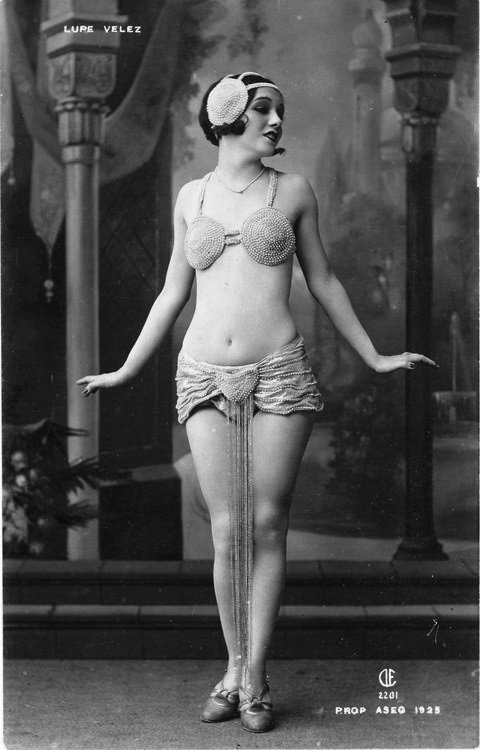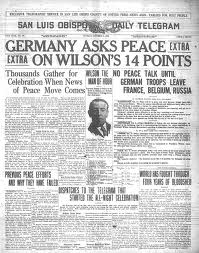The Perils of Prosperity, 1914-1932
by William E. Leuchtenburg
Roaring 20's-WWII
Class & Economy
Politics




Thesis:
The roaring 20's were a time of prosperity the likes of which had never before been known in the United States.The repercussions of this time are still felt today including consumerism, an expanse of Women's rights, the US as a predominant world power.
"The United States had to come to terms with a strong state, the dominance of the metropolis, secularization and the breakdown of religious sanctions, the loss of authority of the family, industrial concentration, international power politics, and mass culture. "
The roaring 20's were a time of prosperity the likes of which had never before been known in the United States.The repercussions of this time are still felt today including consumerism, an expanse of Women's rights, the US as a predominant world power.
"The United States had to come to terms with a strong state, the dominance of the metropolis, secularization and the breakdown of religious sanctions, the loss of authority of the family, industrial concentration, international power politics, and mass culture. "
Specific examples/evidence that supports the
thesis:
Summary:
What does this tell us about Class & Economy in the Roaring 20’s-WWII?
This era resulted in a substantial growth of wealth in the country as a whole. Every person increased their buying power and increased their modern conveniences. However, the largest wealth holders were at the top as corporations exploded and the everyday merchant disappeared. America became a creditor nation instead of a debtor nation as europe needed to be rebuild and had virtually no means of production . The results were a huge economic boom in America until the crash of 1929. This was then a "time when the American people took a vacation from sober traditional virtues."
This era resulted in a substantial growth of wealth in the country as a whole. Every person increased their buying power and increased their modern conveniences. However, the largest wealth holders were at the top as corporations exploded and the everyday merchant disappeared. America became a creditor nation instead of a debtor nation as europe needed to be rebuild and had virtually no means of production . The results were a huge economic boom in America until the crash of 1929. This was then a "time when the American people took a vacation from sober traditional virtues."
What does this tell us about Politics in the Roaring 20’s-WWII?
With the World War I coming to an end and the US as a new world power emerged to play the part in settling the peace. Creating the league of nations and the 14 point agreement but after bringing it home could not get it passed by congress. America held strong isolationist sentiment.
With the World War I coming to an end and the US as a new world power emerged to play the part in settling the peace. Creating the league of nations and the 14 point agreement but after bringing it home could not get it passed by congress. America held strong isolationist sentiment.
What parts of the book can be applied to lectures?
This book is a comprehensive overview of the time period, the chapters are broken out by subtopics like economy, minorities, coorporations, etc. A very useful reference for lecture notes.
General Thoughts:
Excerpts from Book Reviews:
"It is especially good on social and intellectual history, with charming chapters on such subjects as "A Botched Civilization," and "The Revolution in Morals." It pays its respects to the economic changes that played so important a part in determining the course of events-"The Second Industrial Revolution." And it does not neglect politics, whether national or international. The chapter on "Tired Radicals" hits off well the inadequacies of the progressives, and the one on "The Sidewalks of New York," the political results of urbanization.
My Highlighted Passages:
America’s entrance into World War I and the end of postwar prosperity,
idealism of Woodrow Wilson and our failure to follow his lead into the League of Nations have become symbols for the continuing weaknesses of American diplomacy and for our refusal to accept responsibilities as a world power.58
time when the American people took a vacation from sober traditional virtues.63
He finds movements in the period which reach back to the nineteenth century: the rise of the city, the change from handicraft to assembly lines, the ascent to the world stage. He sees the beginnings of institutions which would produce the New Deal and with it the changed attitude toward government that has stayed with us ever since.70
Machines had replaced the old artisans; there were few coopers, blacksmiths, or cobblers left.87
The livery stable had been torn down to make way for the filling station. Technology had revolutionized the farm. In 1918, there were 80,000 tractors; in 1929, 850,000. The Old West had disappeared; ranchers were even concerned for a time lest they lose their cowhands to movie westerns. The empire builders like James J. Hill were gone.88
In 1914, the Progressive movement was at its height. Americans believed that by adopting institutional changes—the direct primary, the short ballot, the recall—political life might be made over.97
There was no scourge that would not eventually yield to reason and goodness, they thought.99
c99
The war destroyed much of the traditional confidence in the ability of American society to assimilate all manner of men.162
At the very moment when the country was confronting attacks on traditional standards, the United States was plunged into the responsibilities of becoming the world’s greatest power.164
The country did not want to abandon its isolation,167
But prosperity held perils of its own. It served to justify investing enormous political and social power in a business class with little tradition of leadership. It placed economic primacy in the hands of a country unprepared to guide world trade. It made money the measure of man.175
women, thanks to the suffrage amendment, were able to participate in politics more freely than ever before.185
reformers were nurturing the ideas that were to see fruition in the New Deal.186
It was an age of shameful persecution of minorities186
the Supreme Court, at long last, began to incorporate the Bill of Rights in the Fourteenth Amendment.189
Through the decade, the United States moved quietly away from the rigid isolationism of 1920.194
Abandoning the notion of saving income or goods or capital over time, the country insisted on immediate gratification, a demand chat became institutionalized in the installment plan.2412
By 1929, 1 percent of the financial institutions in the country controlled over 46 percent of the nation’s banking resources. Chain stores expanded rapidly in the postwar years. Chain store units rose from 29,000 in 1918 to 160,000 in 1929;2629
Note: Consolidation of businesses, bought out by bigger firms.
Corporate profits and dividends far outpaced the rise in wages, and despite the high productivity of the period, there was a disturbing amount of unemployment. At any given moment in the “golden twenties,” from 7 to 12 percent were jobless.2651
The very men who were taken as the epitome of the old order were the ones who undermined it—the Victorian statesman Woodrow Wilson, who presided over the transition to a strong state and the breakdown of isolation;3661
The United States had to come to terms with a strong state, the dominance of the metropolis, secularization and the breakdown of religious sanctions, the loss of authority of the family, industrial concentration, international power politics, and mass culture. The country dodged some of these challenges, resorted to violence to eliminate others, and, for still others, found partial answers. The United States in the period from 1914 to 1932 fell far short of working out viable solutions to the difficulties created by the painful transition from nineteenth-century to modern America. But it is, at the very least, charitable to remember that the country has not solved these problems yet.
America’s entrance into World War I and the end of postwar prosperity,
idealism of Woodrow Wilson and our failure to follow his lead into the League of Nations have become symbols for the continuing weaknesses of American diplomacy and for our refusal to accept responsibilities as a world power.58
time when the American people took a vacation from sober traditional virtues.63
He finds movements in the period which reach back to the nineteenth century: the rise of the city, the change from handicraft to assembly lines, the ascent to the world stage. He sees the beginnings of institutions which would produce the New Deal and with it the changed attitude toward government that has stayed with us ever since.70
Machines had replaced the old artisans; there were few coopers, blacksmiths, or cobblers left.87
The livery stable had been torn down to make way for the filling station. Technology had revolutionized the farm. In 1918, there were 80,000 tractors; in 1929, 850,000. The Old West had disappeared; ranchers were even concerned for a time lest they lose their cowhands to movie westerns. The empire builders like James J. Hill were gone.88
In 1914, the Progressive movement was at its height. Americans believed that by adopting institutional changes—the direct primary, the short ballot, the recall—political life might be made over.97
There was no scourge that would not eventually yield to reason and goodness, they thought.99
c99
The war destroyed much of the traditional confidence in the ability of American society to assimilate all manner of men.162
At the very moment when the country was confronting attacks on traditional standards, the United States was plunged into the responsibilities of becoming the world’s greatest power.164
The country did not want to abandon its isolation,167
But prosperity held perils of its own. It served to justify investing enormous political and social power in a business class with little tradition of leadership. It placed economic primacy in the hands of a country unprepared to guide world trade. It made money the measure of man.175
women, thanks to the suffrage amendment, were able to participate in politics more freely than ever before.185
reformers were nurturing the ideas that were to see fruition in the New Deal.186
It was an age of shameful persecution of minorities186
the Supreme Court, at long last, began to incorporate the Bill of Rights in the Fourteenth Amendment.189
Through the decade, the United States moved quietly away from the rigid isolationism of 1920.194
Abandoning the notion of saving income or goods or capital over time, the country insisted on immediate gratification, a demand chat became institutionalized in the installment plan.2412
By 1929, 1 percent of the financial institutions in the country controlled over 46 percent of the nation’s banking resources. Chain stores expanded rapidly in the postwar years. Chain store units rose from 29,000 in 1918 to 160,000 in 1929;2629
Note: Consolidation of businesses, bought out by bigger firms.
Corporate profits and dividends far outpaced the rise in wages, and despite the high productivity of the period, there was a disturbing amount of unemployment. At any given moment in the “golden twenties,” from 7 to 12 percent were jobless.2651
The very men who were taken as the epitome of the old order were the ones who undermined it—the Victorian statesman Woodrow Wilson, who presided over the transition to a strong state and the breakdown of isolation;3661
The United States had to come to terms with a strong state, the dominance of the metropolis, secularization and the breakdown of religious sanctions, the loss of authority of the family, industrial concentration, international power politics, and mass culture. The country dodged some of these challenges, resorted to violence to eliminate others, and, for still others, found partial answers. The United States in the period from 1914 to 1932 fell far short of working out viable solutions to the difficulties created by the painful transition from nineteenth-century to modern America. But it is, at the very least, charitable to remember that the country has not solved these problems yet.
No comments:
Post a Comment